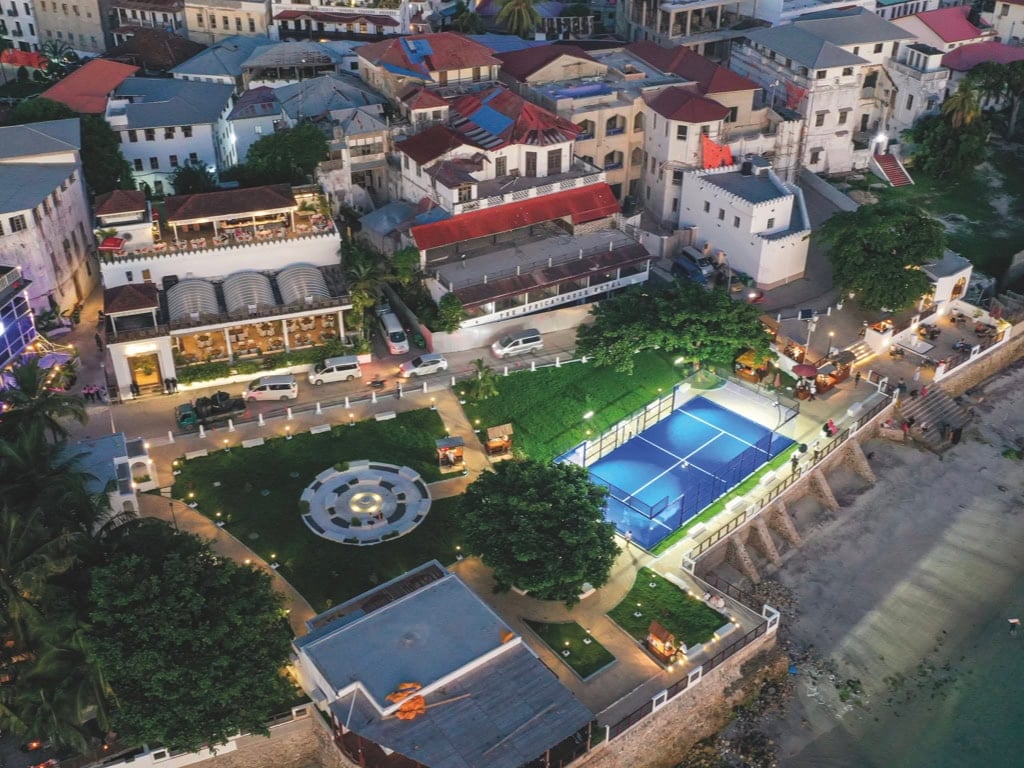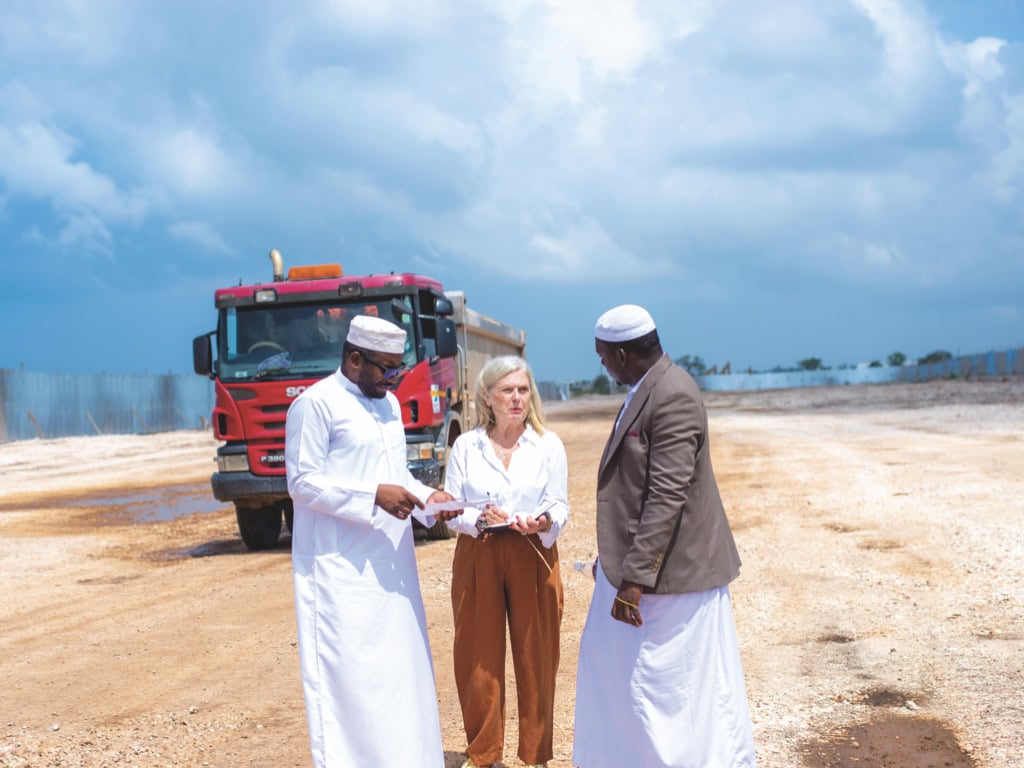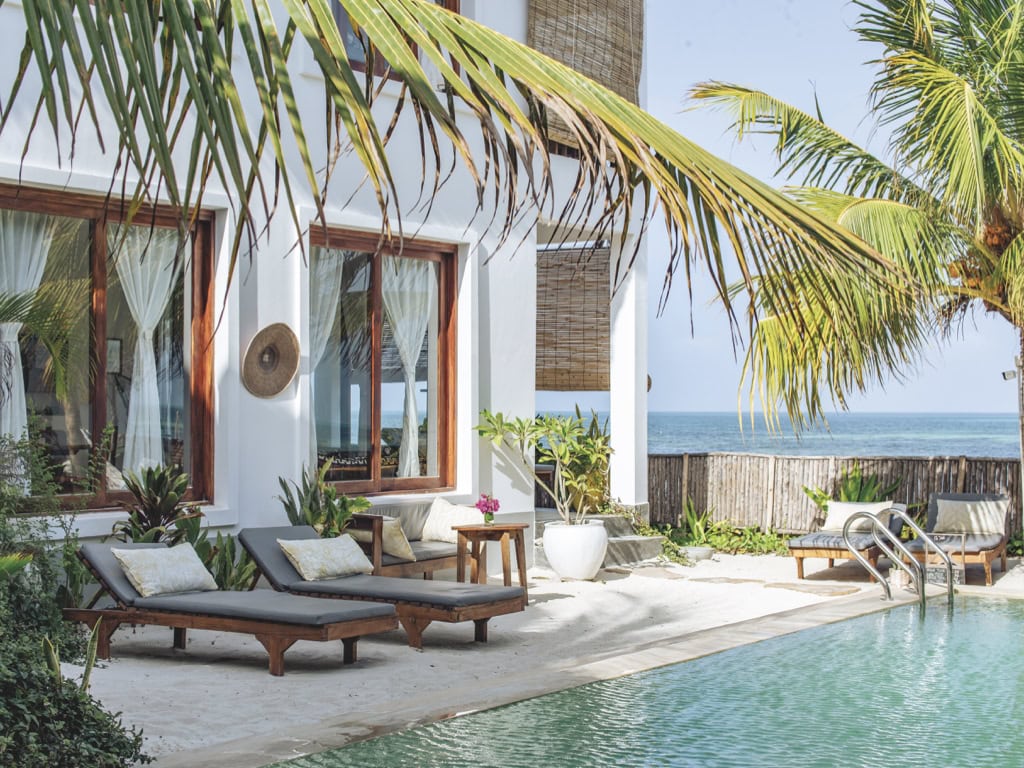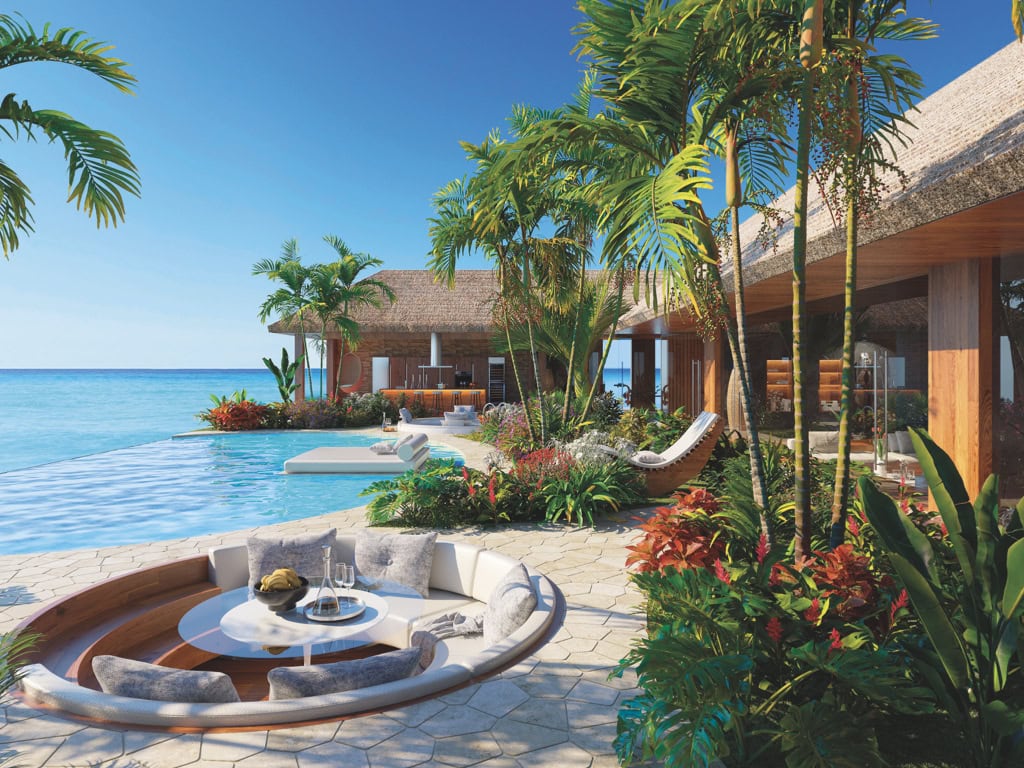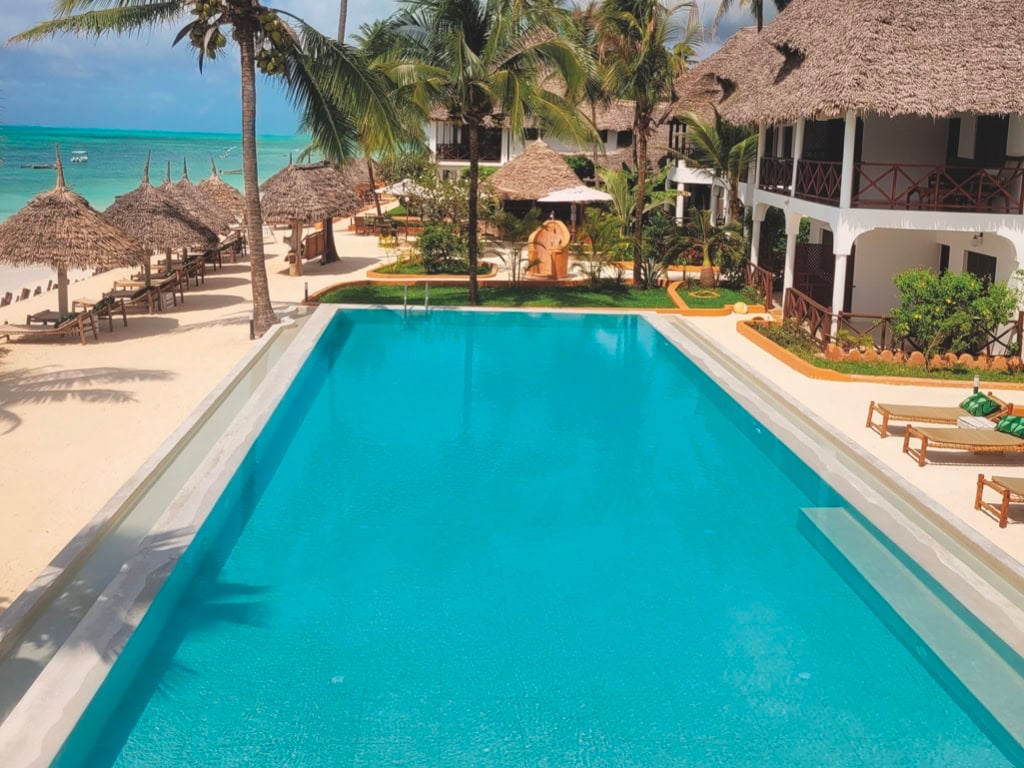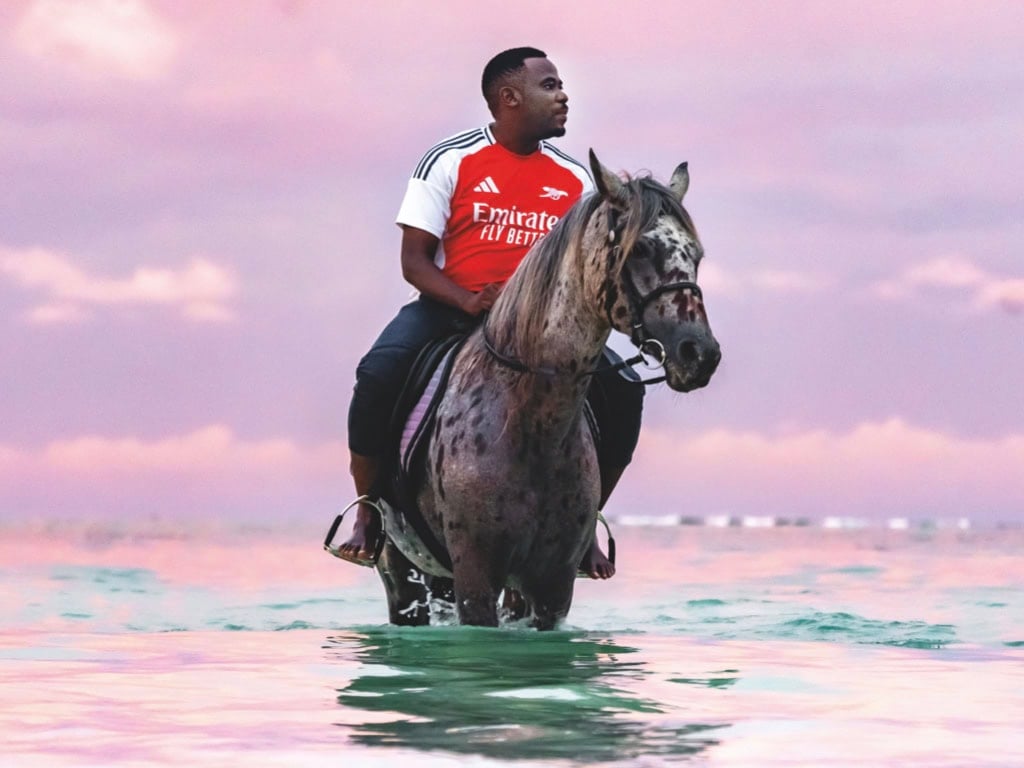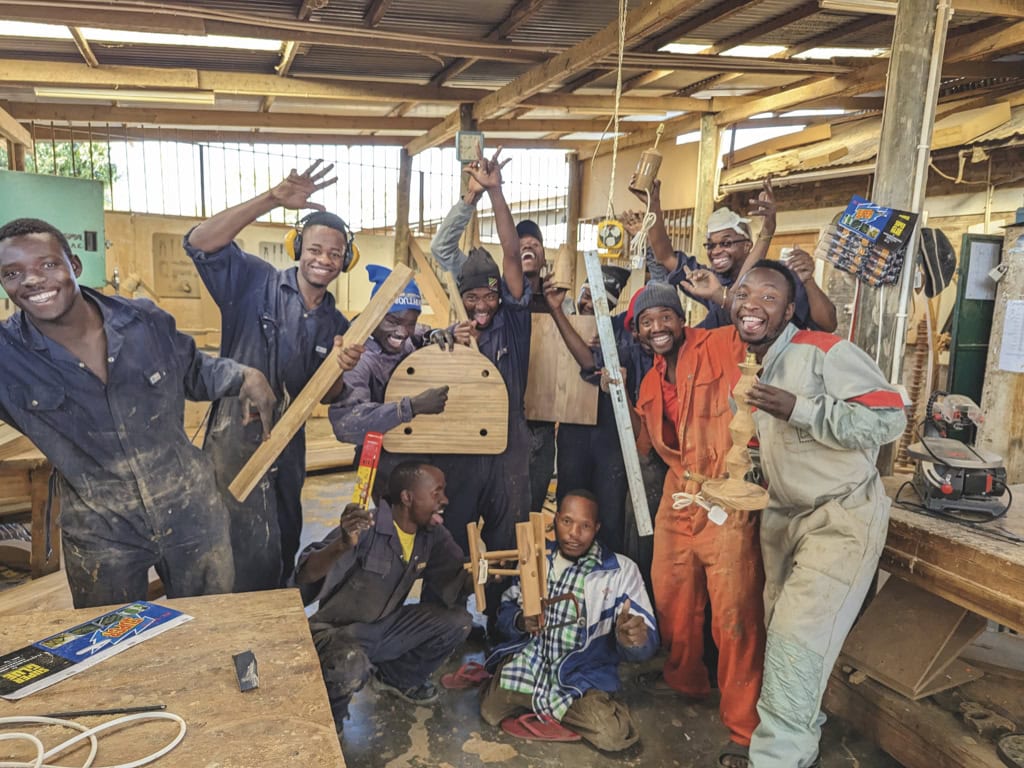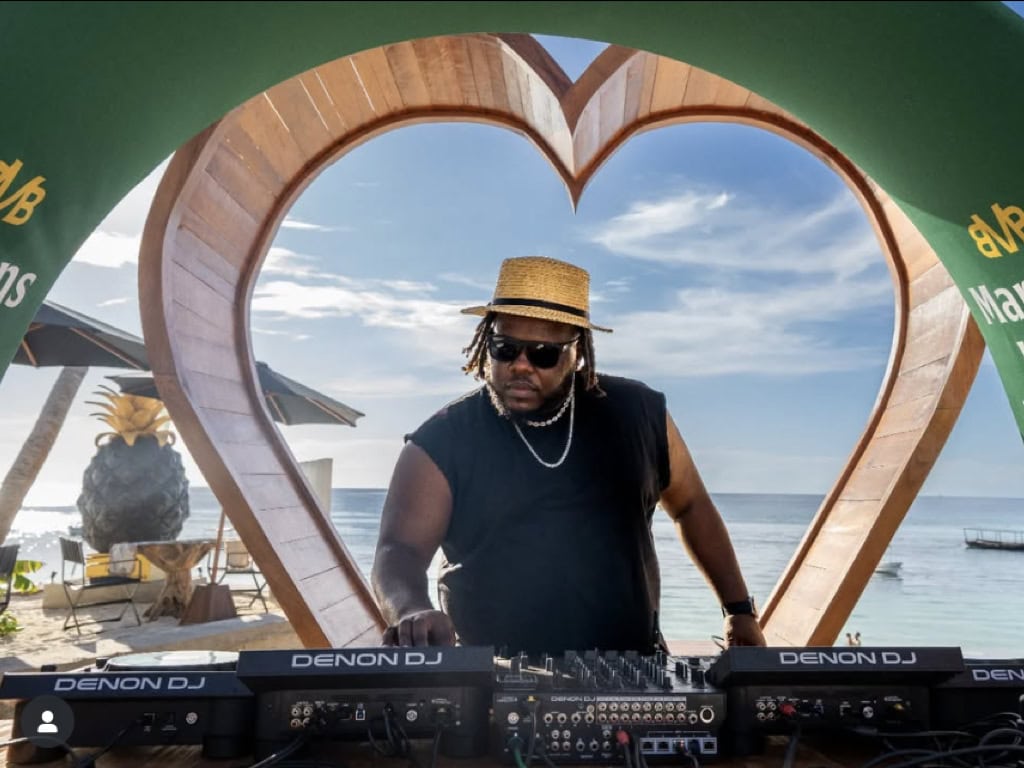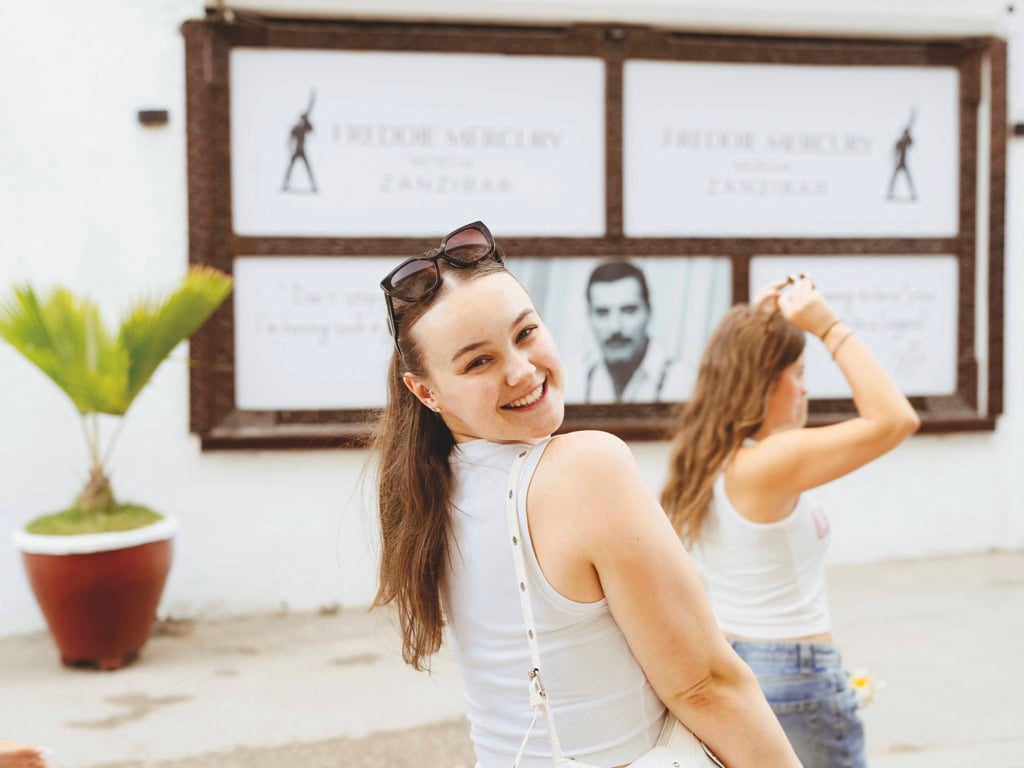“HOW IT ALL STARTED…”
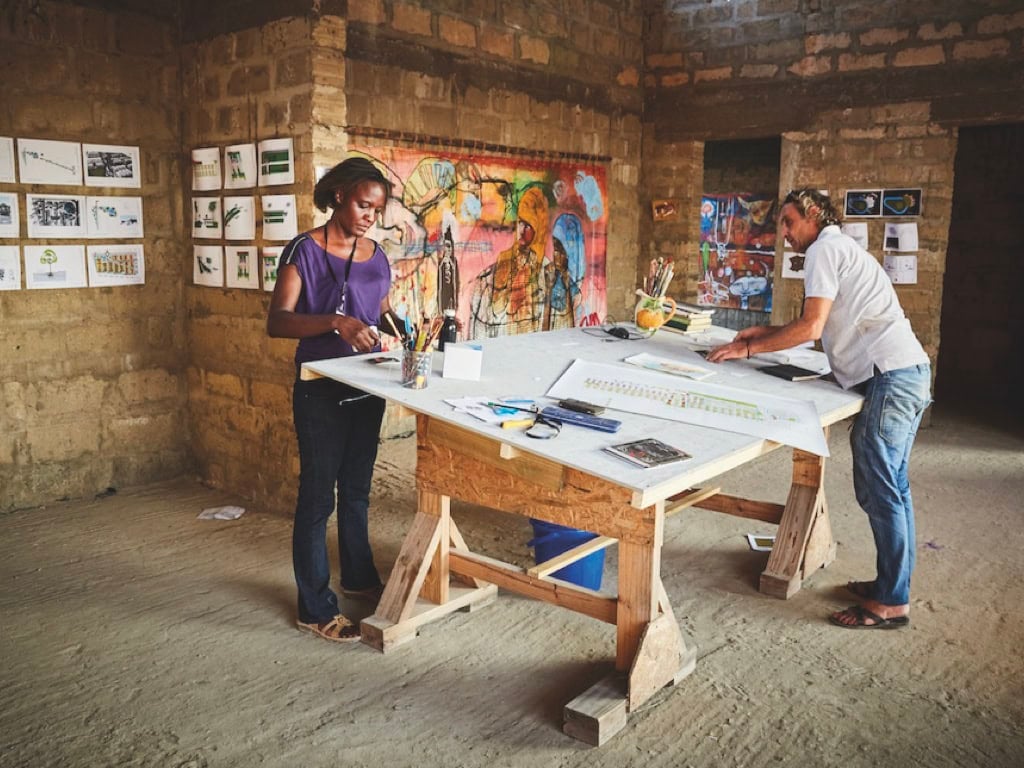
By Sebastian Dietzold
For him and his family Fumba is not just a project but a matter of the heart. The CEO of developer CPS remembers how it all began – on the wild peninsula of Fumba in Zanzibar
There were no tourists, few houses, no roads, hardly anything to talk about in Fumba ten years ago. When you told someone in Stone Town that you were going to the peninsula which is, by the way, exactly the size of Manhattan, they’d dismiss the idea: “What do you want there? There is nothing!” Tourism had started late on the sun-kissed island of Zanzibar in the mid-90s, accelerated in the 2000s, blossomed in the 2010s but not in Fumba, a stretch of coral stone and bushland inhabited by n-one but a few fishermen south of the fast-growing capital Zanzibar City. In the 80s, an Indian company had set out to create a “Star City” here which was never realised. So people were really sceptical. Still, it was here that our vision of a new urban centre, a modern and ecological overflow for the capital, a city for Zanzibari as well as for foreigners, unfolded. It was clear from the start that we would not receive government subsidies nor use development aid, but that the idea had to be commercially viable to succeed.
Exploring mangroves
In the early days, we undertook family excursions into the mangroves with my wife Katrin, my parents and our three small daughters. There we met young boys, sons of fishermen, now proudly working for our security firm “Fortitude Total Security” (FTS)!
But to talk about how it all started, I have to rewind even further. My brother Tobias, my sister Friederike and I grew up in East Africa. We moved to the slopes of the Kilimanjaro with our parents shortly after the fall of the wall in Germany. As a pastor, my father had been active in the famous Monday protests in Germany eventually leading to reunification of the country. And only when that happened, could heleave East Germany.
Learning Swahili in Arusha
Him and my mum accepted a missionary posting near Arusha – we learnt our Swahili there and went to the international school. I was 15 years old, my brother seven – the years in Africa have obviously shaped us. We eventually returned to Germany to study civil and electrical engineering, made our first money in real estate, but the pull of Tanzania brought us back to Zanzibar in 2011, with a vague idea to build real estate here.
Faced with the geopolitical changes, Zanzibar had received its own wake-up call at the time, opening up to tourism. When the government approached us to develop an affordable housing project for the rapidly growing population in Zanzibar – it was like a dream come true! Exactly what we had in mind! Fumba, mostly without beach but a typical mangrove and coral cliff west-shore coastline, had been earmarked as a free economic zone conveniently placed near the capital.
Months under a mango tree
Our first negotiating partner was Salum Nassour, ex-boss of the Zanzibar Investment Promotion Authority (ZIPA), an institution we are still dealing with today. Days, weeks and months we spent under a mango tree – still standing at the entrance road into Fumba – discussing conditions with village leaders and former Sheha Katibu Ame. During these years from 2012 to 2014, I was certainly glad that I had learnt Swahili in Arusha!
On 31 August 2015 the deal stood – the most important passage: We could “sell to Tanzanians and anybody else on the basis of 99-year lease title deeds”. A huge step forward! Legislation was changed for that, and many times after. I think it’s correct to say that the government and us developed many crucial improvements for real estate and foreign investment in Zanzibar together. It has been a huge learning curve for everybody, maybe slow at times, but we are deeply thankful for all the support given, all the doors opened. We even negotiated for a ferry to operate between Fumba Town and Dar es Salaam, a highlight we are still waiting for…
Have we ever expected the “housing project” of the early days to become a full blown town? Well, we grew into it. Paying compensation to each and every one of 154 small scale farmers on the land, test-drilling to check the ground and water quality, erecting the first two show houses, one in stone, one in wood – these were the early days, with cornerstones of our philosophy already visible: an equitable, all-inclusive, green urban development. The trust people gave us was overwhelming. I remember my first sales tour to Muscat – an obvious destination given the long history of Zanzibar as an Omani sultanate. Omanis were lining-up to sign purchase agreements, they trusted a German developer!
Events speeded up: the first house hand-over in the presence of the former President Dr. Ali Mohamed Shein; the palpable excitement of the new owners, an Omani couple from the UK. Our first Open House day showcasing the construction site to the public. Bands performing on house foundations: a clear omen of Fumba becoming a major cultural magnet. The opening of the much-loved Kwetu Kwenu café at a newly built roundabout. Hiring staff with job descriptions unheard of: “permaculture gardener”, “assistant town manager”, “sales receptionist”. It’s impossible for me to name here all the true companions found, friends made, colleagues and employees won in the process. Fact is, we were not only working, but actually living together. We opened our first offices in townhouses, improvising every day.
Our growing CPS family has always had a knack for parties, missing no occasion to celebrate, marking every milestone. In the early days, everyone knew everyone in town, a new car entering the vicinity was eyed suspiciously. We held family and company barbecues right on the Kwetu Kwenu roundabout! We used the impressive backdrop of the Mao Zedong football Stadium in Michenzani for a glamour event to introduce our newly designed CheiChei apartments – a low-price gem for local Zanzibari. When we had sold 1,000 units, we booked a brass band.
New ideas, new houses! Mwangani apartments followed townhouses when it became clear that we need to build with more density for more inhabitants. Timber Vizazi Homes complemented Bustani villas when luxury developed into green luxury. Of course: there were endless challenges and mistakes made. Contractors who did not live up to quality standards. Building sand turning a scarcity for years; window frames stuck at the port for months. Corona leading to virtual handovers!
But we are still here and we are growing by the day. With our most ambitious project yet in the pipeline – the 27-floor Burj Zanzibar, an engineered timber construction to become the tallest timber building in the world – we are certainly neither running out of ideas nor at the end of our mission!
The future challenges of Fumba Town? In my opinion, the task is threefold: to continue creating a proper framework for decent urbanisation in Africa, to invite other developers to join the effort, and to keep focussing on green technology for affordable homes.
What is best in Fumba?
People often ask me: What is the best of Fumba? “The fact that children can safely play in the neighbourhood without any supervision”, a resident mum once told me, and my wife would agree. My wife Katrin, my brother Tobias and I have steered the evergrowing ship named Fumba Town (and Paje, and other projects) together and I am hugely thankful for it. Also for the never-waning support of our parents, our sister Friederike and of many friends.
What is best in Fumba? People from over 60 nations living peacefully together, some say. The evening breeze. The sunset. Safety. Residence permits for foreigners. Investment possibilities. An ecological future. I’d say: If Fumba stands for all that, we can’t be wrong.
Share

